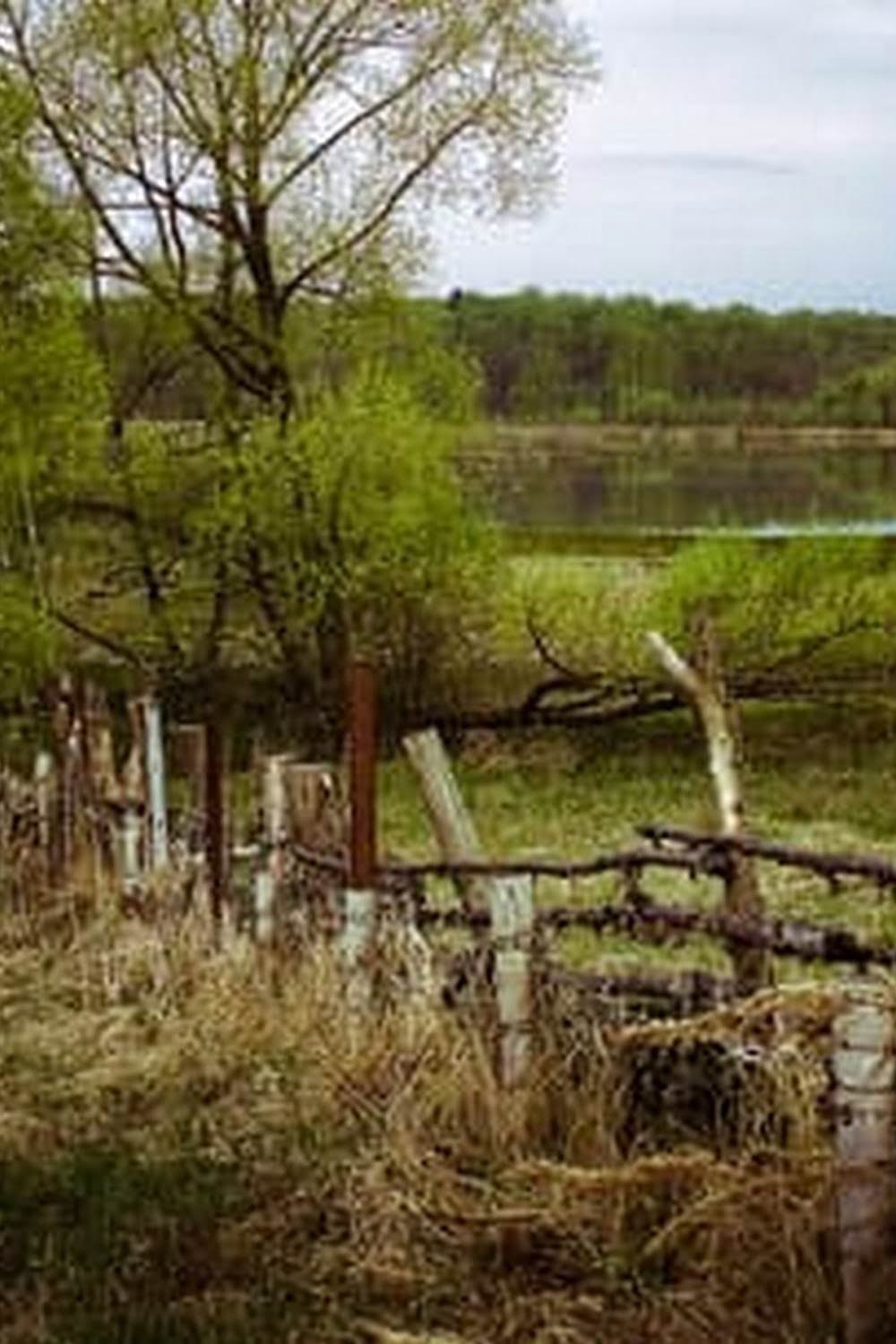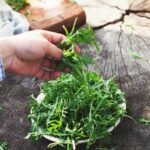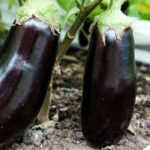Is Home Depot mulch safe to use on vegetable gardens? Mulch plays a vital role in maintaining the health and productivity of vegetable gardens. Understanding what mulch is, its benefits, and potential safety concerns when using Home Depot mulch is crucial for gardeners. In this article, we will delve into the importance of mulch in vegetable gardens and address the specific concerns regarding the safety of using Home Depot mulch.
Mulch serves as a protective layer that covers the soil around plants, helping to retain moisture, suppress weeds, and regulate soil temperature. Additionally, it can improve soil structure and fertility. However, when it comes to selecting mulch for vegetable gardens, there are concerns about the safety of products available at stores like Home Depot. This raises questions about whether Home Depot mulch is safe to use on vegetable gardens, particularly when it comes to chemical composition and potential hazards.
At Home Depot, there are various types of mulch available for purchase, each with its own set of pros and cons. As we explore the different options, we will consider which type of mulch is most suitable for vegetable gardens based on safety and effectiveness.
It is essential to understand the chemical composition of Home Depot mulch and how it may impact the overall health of the soil and plants in vegetable gardens. Taking these factors into account is integral to making informed decisions about the use of mulch in gardening practices.
Different Types of Mulch Available at Home Depot
When it comes to purchasing mulch for a vegetable garden, Home Depot offers a variety of options to choose from. Some of the most common types of mulch available at Home Depot include wood chips, pine straw, rubber mulch, and shredded bark. Each type of mulch has its own set of pros and cons that should be considered before making a decision.
Wood chips are a popular choice for many gardeners due to their affordability and ability to retain moisture in the soil. However, they may require more frequent replacement compared to other types of mulch. Pine straw is another inexpensive option that is lightweight and easy to spread, but it does not provide the same level of weed control as other types of mulch.
Rubber mulch is a long-lasting option made from recycled tires, but there is some concern about the potential leaching of chemicals into the soil over time. Shredded bark mulch is aesthetically pleasing and can improve soil structure as it decomposes, but it may be more expensive than other options.
When choosing a type of mulch for a vegetable garden, it’s important to consider factors such as cost, durability, environmental impact, and how well the mulch will perform in terms of weed suppression and moisture retention. Additionally, the specific needs of different types of vegetable plants should also be taken into account when selecting the most suitable type of mulch for a particular garden.
Chemical Composition of Home Depot Mulch
When considering the safety of using Home Depot mulch in vegetable gardens, it’s essential to understand the chemical composition of the mulch. Home Depot offers a variety of mulch options, each with its own unique chemical makeup. Some common types of mulch available at Home Depot include:
- Cypress Mulch
- Pine Bark Mulch
- Rubber Mulch
- Cocoa Mulch
Each type of mulch contains different chemicals and ingredients that can have varying effects on vegetable plants and the soil. For example, certain types of dyed mulch may contain chemicals that can leach into the soil and affect plant growth. It’s important for gardeners to be aware of these factors when choosing a mulch for their vegetable garden.
It’s crucial to analyze the potential effects of these chemicals on vegetable plants. Some chemicals may have adverse effects on plant growth or pose risks to human health if consumed. Understanding the specific composition of Home Depot mulch can help gardeners make informed decisions about which type of mulch is safest for their vegetable gardens.
Potential Hazards of Using Home Depot Mulch on Vegetable Gardens
Risks of Chemical Exposure
Home Depot mulch, like many commercially available mulches, may contain chemicals and ingredients that could potentially be harmful to vegetable plants. These chemicals can include dyes, preservatives, and other additives that are used to enhance the appearance and longevity of the mulch. When these chemicals come into contact with the soil and the plant roots, they have the potential to leach into the soil and be absorbed by the plants, posing a risk to their growth and health.
Soil Contamination
Another potential hazard of using Home Depot mulch in vegetable gardens is the risk of soil contamination. Some types of mulch may contain substances that, when broken down over time, release toxins into the soil.
This can not only affect the current crop of vegetables but also have a long-term impact on the overall health and fertility of the soil. Furthermore, certain chemical compounds found in mulch can disrupt the delicate balance of microorganisms in the soil, further impacting its quality.
Impact on Plant Growth
In addition to potential chemical exposure and soil contamination, using unsafe mulch from Home Depot can also directly impact plant growth. Certain chemicals found in some types of mulch may hinder nutrient absorption by plant roots or even inhibit their ability to photosynthesize effectively. This could lead to stunted growth, reduced yield, or even complete crop loss if not addressed promptly.
Considering these potential hazards, it is crucial for gardeners to carefully assess the type of Home Depot mulch they are considering using in their vegetable gardens and take appropriate precautions to mitigate any risks associated with its use.
Safety Considerations for Vegetable Gardens
Precautions When Using Home Depot Mulch
When using Home Depot mulch in vegetable gardens, it is important to take certain precautions to ensure the safety of the plants and soil. One of the key steps is to carefully read the labels on the mulch bags to understand the composition and potential risks associated with the product. Some types of mulch may contain chemicals or additives that could be harmful to vegetable plants, so it is essential to be aware of these components before applying the mulch.
Testing the Soil and Monitoring Plant Health
Before using Home Depot mulch in a vegetable garden, consider testing the soil for any existing chemical imbalances or contaminants. This will help determine whether adding mulch with certain chemicals could aggravate or offset the soil’s composition. Additionally, closely monitor the health of vegetable plants after applying the mulch. Look out for any signs of distress or negative effects on growth, as this could indicate that the mulch may not be suitable for use in the garden.
Applying Mulch Safely
When applying Home Depot mulch in a vegetable garden, it is important to do so safely and effectively. Make sure to apply an appropriate layer of mulch – typically 2-4 inches – while leaving some space around plant stems to prevent moisture-related issues. Also, avoid mixing different types of mulch together, as this can introduce unknown elements into the garden environment.
Lastly, consider using a barrier such as landscaping fabric underneath the mulch to minimize direct contact between potentially harmful substances and the soil. By following these safety considerations, you can help ensure that your vegetable garden remains healthy and productive when using Home Depot mulch.
The Impact of Mulch on Soil Health
Mulch plays a crucial role in maintaining the health of the soil in vegetable gardens. When properly applied, mulch can provide numerous benefits to the soil, including moisture retention, weed suppression, and temperature regulation. Additionally, it can also contribute to the improvement of soil structure and fertility. By creating a protective barrier over the soil, mulch helps to minimize erosion and compaction, which are harmful to soil health.
However, using unsafe mulch from Home Depot in vegetable gardens can have adverse effects on soil health. Chemicals present in certain types of Home Depot mulch can leach into the soil and disrupt its natural balance.
This can lead to decreased microbial activity and nutrient availability in the soil, ultimately impacting the overall health and productivity of vegetable plants. Therefore, it is essential to consider the potential impact of using Home Depot mulch on the long-term sustainability of your garden’s soil.
To avoid jeopardizing soil health, gardeners should exercise caution when choosing mulch for their vegetable gardens. It is crucial to thoroughly research and understand the chemical composition of any mulch product before applying it to your garden.
Opting for organic or natural alternatives to Home Depot mulch can help ensure that your soil remains healthy and conducive to plant growth. By prioritizing the well-being of your garden’s soil, you can create a sustainable environment where your vegetable plants can thrive and produce high-quality yields.
Alternative Options for Mulch in Vegetable Gardens
There are several alternative options for mulch in vegetable gardens that can provide a safe and effective alternative to using Home Depot mulch. Organic materials such as straw, grass clippings, leaves, and compost can serve as excellent mulching materials for vegetable gardens.
These natural alternatives are free from potentially harmful chemicals and synthetic additives that may be present in commercial mulch products. Additionally, organic mulches offer the benefit of adding nutrients to the soil as they decompose, further enhancing the health of the vegetables.
One popular organic alternative to Home Depot mulch is straw, which is readily available and relatively inexpensive. Straw provides excellent insulation and moisture retention for vegetable plants while also helping to suppress weed growth.
Another effective option is compost, which not only serves as a protective layer for the soil but also enriches it with essential nutrients as it breaks down. Grass clippings and leaves are also suitable choices for mulching vegetable gardens, providing natural insulation, weed control, and nutrient supplementation.
When comparing these natural alternatives with Home Depot mulch, it is important to consider factors such as cost, availability, effectiveness in maintaining moisture levels and temperature control, as well as their overall impact on soil health. Understanding these considerations will help gardeners make informed decisions when choosing the most suitable type of mulch for their vegetable gardens.
| Organic Mulch Option | Main Benefits |
|---|---|
| Straw | Effective insulation and moisture retention; suppresses weed growth |
| Compost | Nutrient-rich; enhances soil health; helps control weed growth |
| Grass Clippings & Leaves | Natural insulation; weed control; nutrient supplementation |
Conclusion
In conclusion, while Home Depot offers a wide range of mulch options, it is important to carefully consider the safety implications of using these products in vegetable gardens. The chemical composition of some types of Home Depot mulch may pose potential hazards to vegetable plants and the overall soil health.
It is crucial for gardeners to be aware of the risks associated with certain mulch options and to take necessary precautions to ensure the safety and effectiveness of their chosen mulch.
As seen in our analysis, the use of certain types of Home Depot mulch can have negative effects on soil quality and potentially harm vegetable plants. Therefore, it is advisable for gardeners to thoroughly research and understand the chemical composition of any mulch they intend to use in their vegetable gardens. Additionally, considering natural and organic alternatives may be a safer and more environmentally friendly option for maintaining soil health and ensuring the safety of vegetable plants.
In summary, while there are benefits to using mulch in vegetable gardens, it is important for gardeners to make informed decisions about the type of mulch they use. By understanding the potential hazards associated with certain types of Home Depot mulch and exploring alternative options, gardeners can effectively maintain soil health and safeguard their vegetable plants from any detrimental effects. Ultimately, prioritizing safety considerations when using mulch in vegetable gardens will contribute to a healthier and more bountiful harvest.
Frequently Asked Questions
What Mulch Is Safe for Vegetable Gardens?
Mulch that is safe for vegetable gardens includes organic materials such as straw, grass clippings, leaves, and compost. These types of mulch provide added nutrients to the soil as they break down and help retain moisture, suppress weeds, and regulate soil temperature – all important for a healthy vegetable garden.
Can You Use Bagged Mulch in Vegetable Garden?
Yes, you can use bagged mulch in a vegetable garden as long as it is made from natural and organic materials. Bagged mulch made from bark, wood chips, or shredded leaves can be spread around vegetable plants to help conserve moisture and control weed growth.
It’s important to avoid using dyed or treated mulch in the garden to prevent harmful chemicals from leaching into the soil.
Is It Safe to Use Colored Mulch in a Vegetable Garden?
While colored mulch may add visual interest to a vegetable garden, it is not recommended to use it because the dyes used in these products could potentially be harmful to plants and soil life. The chemicals used in colored mulch may also leach into the soil over time, posing a risk to edible crops.
It’s best to stick with natural, uncolored mulches in vegetable gardens for optimal plant health and safety.

If you’re looking to get into vegetable gardening, or are just looking for some tips on how to make your current garden better, then you’ve come to the right place! My name is Ethel and I have been gardening for years. In this blog, I’m going to share with you some of my best tips on how to create a successful vegetable garden.





